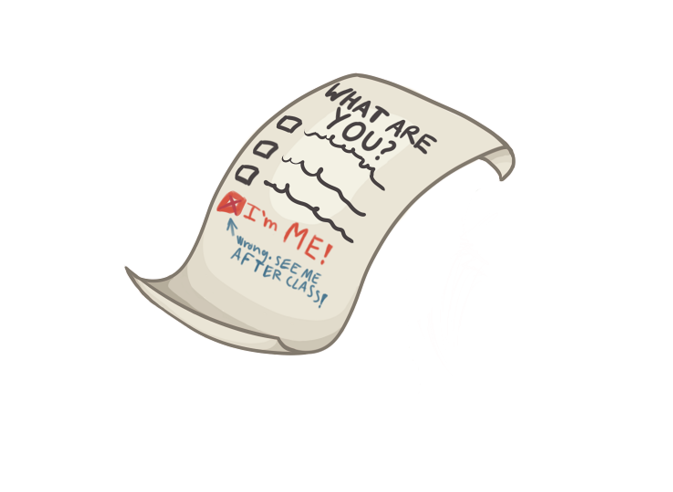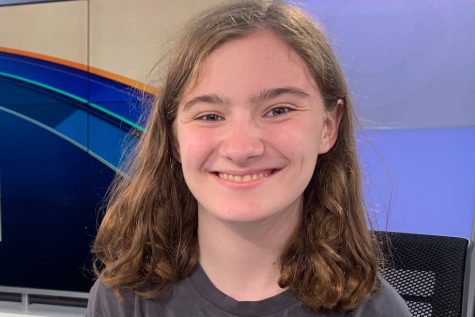School district has a lack of representation for disabled members of the community
Concerns over generalizations of students with IEP and 504 plans step up to the spotlight.
October 16, 2020
For the past few weeks or so now, I have found myself watching the District 204 School Board’s meetings on YouTube. For the most part, the meetings are quite standard: the board discusses financial plans with plain bar graphs and dotted line charts, parents buzz in about halfway through with their gratitudes and grievances, and they discuss plans over when students will return to in-person schooling. However, as I watch these meetings, there has been something itching at the back of my mind each time. Something that grows more apparent as the in-person learning plans are fleshed out.
When it comes to the return of in-person learning, students with Individualized Education Plans (IEPs) and Section 504 plans are never given their own voice. While other students will appear to make statements at the start of the meetings or are brought up in surveys, IEP and 504 plan students become something of a token used by many sides of any given debate with little to no chance to speak up for themselves.
An IEP is a legal document crafted individually for a special education student to address that student’s needs. A 504 plan is similar to an IEP but less detailed and broader in nature. IEPs and 504 plans serve students of all different types of disabilities, and those students make up a very diverse crowd, with many different requirements, personalities, and perspectives. No two special education students are alike. I should know, as I have an IEP.
The issue is, however, that IPSD tends to categorize special education students as one singular category, when in reality all of us are very different from one another, just as our neurotypical and/or able-bodied peers are. I have heard at these meetings that all IEP students supposedly need in-person learning, for example, so we should all go back within the building. However, I know several IEP students, including me, who have thrived in remote learning environments, and would not go back to school for a hybrid model.
These broad generalizations worry me because categorizing all special education students into one group defeats the purpose of an IEP to begin with. How are we to be individualized if the district sees us as just one category? How are my needs to be met if I am simply lumped into yet another category with everyone else instead of being seen as my own individual person with my own thoughts and educational needs?
IPSD’s constant categorization of us as not just part of the student population but a separate other grows darker in nature when one considers the comments they have made towards students with IEPs in the past. At last year’s meeting on Oct. 21, for example, one of the mentioned topics during the meeting was the inclusion of students with IEPs on cumulative test score reports throughout the district. Why? Students with disabilities are generally considered to perform lower on these assessments than the “normal” student body. The school board mentioned that, while they would not consider the action for their own district, other school districts could easily exclude disabled students from their reports to look more academically capable. Think about that for a second. School districts consider us a shame because some students with IEPs perform lower on tests (tests that were never designed for disabled students, may I add) to the point that they do not want to include us as students on their reports so they can look better. The cruelty of this is shocking.
I refuse to believe, however, that the constant overlooking and overgeneralization of IEP students by our district is terminal. Even though it is so clear to me, even though I have dealt with it in some form or another nearly every month since I first set foot in a school when I was a kindergartener, I refuse to believe that this is how it always will be.
Including those with disabilities on the school board’s meetings would make for a great first step. For example, the school could make a separate standardized test report focusing on IEP and 504 Plan students. Instead of seeing the historically lower scores as something to be ashamed of, see it as something that displays that the standardized tests themselves are not built for disabled students and that the standardized tests themselves need to be changed to offer equal opportunities. Give us an ability to speak outside of the brief public feedback window. Include someone on the board who themselves has a disability and will be able to speak up for us. Or, at least, a disability representative. Nothing should be dictated about us without us. Let us voice our own opinions and experiences, and believe us when we say our disability does not rob us of our ability to speak the truth. Address us as not ‘students with IEP’ or ‘special education students’, but rather as individuals.
After all, 204’s mission statement, the first thing you see when you log onto their website, is, “Inspire all students to reach their full potential.” I can see no better way to do this than to include those with disabilities in school board meetings. Not only will they be inspiring us to reach our full potential, but they will be inspiring our able peers to understand us too. What better way is there to reach full potential than to be an understanding human being?









careless potato • Oct 17, 2020 at 7:14 pm
Amazing! You should consider signing up to speak at a board meeting O.O